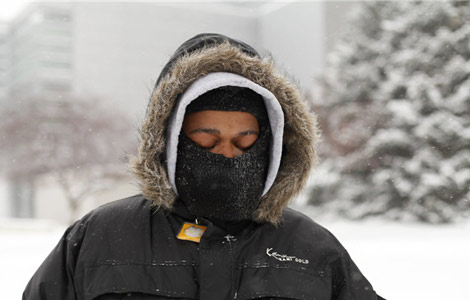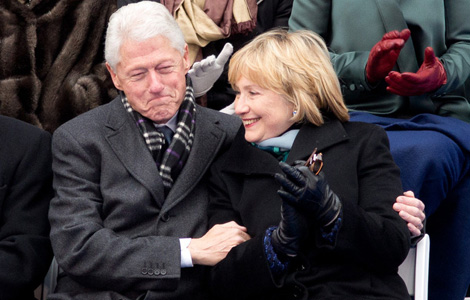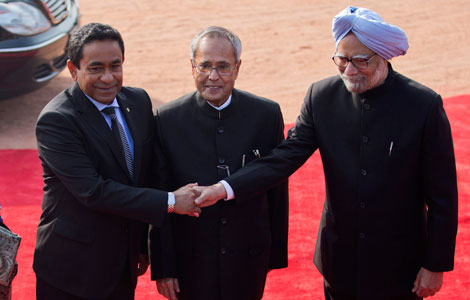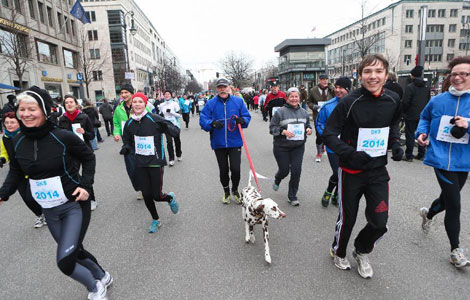

Rallying the support of the Pacific island nations tops Japanese Prime Minister Shinzo Abe's diplomatic wish list for the new year as he seeks to further contain China's maritime presence.
But Chinese observers and Asian media are warning that the Japanese leader's plans may backfire if he continues to rewrite Japan's history during World War II.
Within the next two years, Abe will visit the island nations in the southern Pacific Ocean that witnessed battles between Japan and the United States during the war, reported Japanese newspaper Sankei Shimbun in unveiling Abe's plan on Tuesday.
As the first sitting Japanese prime minister to visit the region in 29 years, Abe plans to honor Japanese soldiers buried there and expedite the retrieval of their remains, Sankei Shimbun said.
Chosun Ilbo, a South Korean newspaper, criticized Abe's Pacific islands tour for "aiming to beautify Japan's past invasions". It said the tour is similar in nature to Abe's controversial visit on Dec 26 to the Yasukuni Shrine, which honors 14 Class-A war criminals of World War II and is considered a symbol of Japan's past militarism.
Wu Huaizhong, a director at the Institute of Japanese Studies at the Chinese Academy of Social Sciences, said pilgrimages that honor Japanese soldiers who died during World War II is "an indication of a right-wing mentality".
A visit to honor Japanese soldiers almost a year ago by a Japanese politician also drew sharp criticism. Japanese Deputy Prime Minister and Finance Minister Taro Aso visited a Japanese war cemetery that contained the remains of Japanese soldiers who invaded Myanmar — then Burma — in the then-capital, Yangon, on Jan 4. The visit sparked protests by Myanmar's war veterans who fought against Japanese aggression in the country.
"During World War II, Japan's aggression brought disaster to many Asian countries. The behavior of honoring those who have been judged by history as guilty is similar to paying a visit to the Yasukuni Shrine," Wu said.
Visiting the countries one by one will "trigger predictable protests from the international community" because the islands represent Japanese right-wing "nostalgia about Japan's wartime militarism", said South Korean newspaper JoongAng Ilbo.
South Korea's top diplomat repeated his condemnation on Tuesday of Japanese politicians for their visit to the Yasukuni Shrine. He described the visits as a big stumbling block to peace and cooperation in the region.
"As seen in Japanese Prime Minister Shinzo Abe's recent visit to the Yasukuni Shrine, the revisionist attitude of Japan's leadership has brought isolation upon the country," Foreign Minister Yun Byung-se said in his New Year's message on Thursday.
Another of Abe's goal on his regional tour is to contain China's presence in the Pacific Ocean because China is "strengthening economic cooperation with stakeholders of the region, and the Chinese navy has been entering the Pacific Ocean frequently", Sankei Shimbun said.
Abe is scheduled to attend the annual Pacific Islands Forum at Palau in September.
Wang Shan, a researcher on Japanese studies at China Institutes of Contemporary International Relations, said Tokyo in recent years has been working to secure Japan's influence and engagement in the region with the ultimate goal of revitalizing Japan's maritime power.
"Abe is sparing no effort in building a ‘maritime encirclement against China' in his diplomatic blueprint," Wang said.
Zhou Yongsheng, a professor of Japanese studies at China Foreign Affairs University, said Abe is desperate to engage more countries in the region to step up pressure on China. He said Abe is forcing the island nations to take sides between China and Japan.







